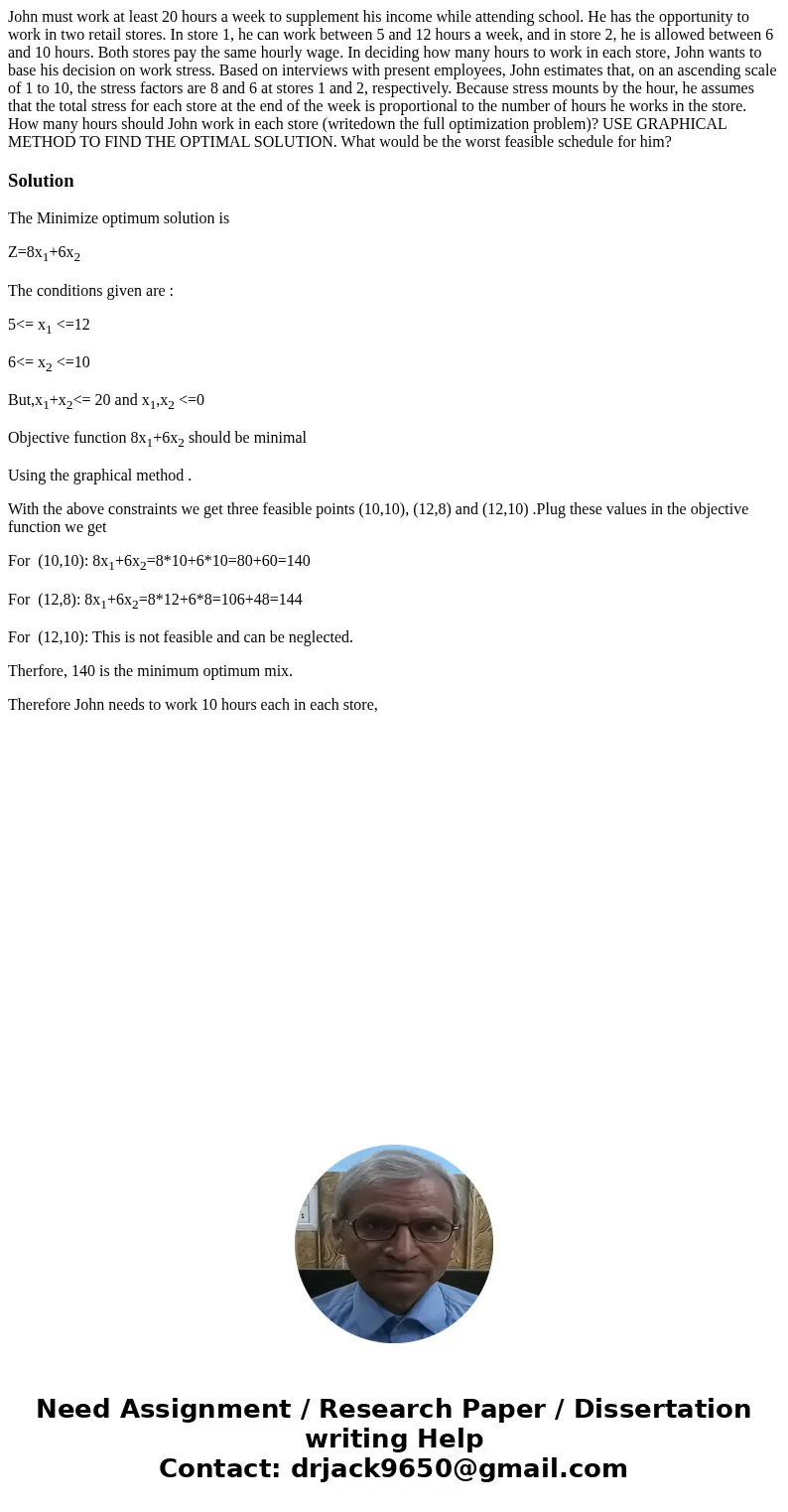John must work at least 20 hours a week to supplement his in
John must work at least 20 hours a week to supplement his income while attending school. He has the opportunity to work in two retail stores. In store 1, he can work between 5 and 12 hours a week, and in store 2, he is allowed between 6 and 10 hours. Both stores pay the same hourly wage. In deciding how many hours to work in each store, John wants to base his decision on work stress. Based on interviews with present employees, John estimates that, on an ascending scale of 1 to 10, the stress factors are 8 and 6 at stores 1 and 2, respectively. Because stress mounts by the hour, he assumes that the total stress for each store at the end of the week is proportional to the number of hours he works in the store. How many hours should John work in each store (writedown the full optimization problem)? USE GRAPHICAL METHOD TO FIND THE OPTIMAL SOLUTION. What would be the worst feasible schedule for him?
Solution
The Minimize optimum solution is
Z=8x1+6x2
The conditions given are :
5<= x1 <=12
6<= x2 <=10
But,x1+x2<= 20 and x1,x2 <=0
Objective function 8x1+6x2 should be minimal
Using the graphical method .
With the above constraints we get three feasible points (10,10), (12,8) and (12,10) .Plug these values in the objective function we get
For (10,10): 8x1+6x2=8*10+6*10=80+60=140
For (12,8): 8x1+6x2=8*12+6*8=106+48=144
For (12,10): This is not feasible and can be neglected.
Therfore, 140 is the minimum optimum mix.
Therefore John needs to work 10 hours each in each store,

 Homework Sourse
Homework Sourse